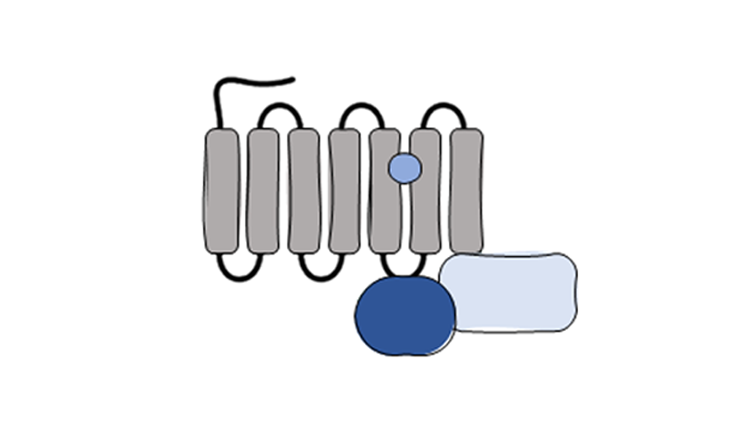
Signaling in the CNS
The brain is a complex, temporally and spatially, multiscale structure designed to transmit and compute information from internal and external signals to govern and maintain physiology. Signal transduction is mediated by receptors that reside at the cell surface and have evolved to recognize a wide variety of extracellular cues and translate them into specific outputs within the cell.
Our research focuses on G-protein coupled receptors (GPCRs), a large family of membrane proteins that regulate multiple aspects of brain physiology from vision and taste to the mediation of mood, appetite and cognition. By combining structural biology (Cryo-EM) with biochemistry and cell biology, we uncover the mechanisms of GPCR biology in health and disease.


